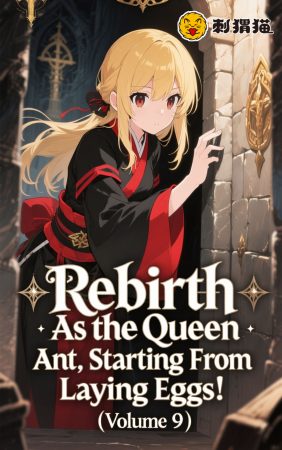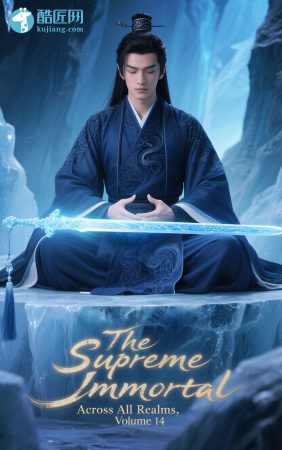Chapter 22: The Iron Dilemma
Our Discord Server: https://discord.gg/PazjBDkTmW
You can buy coins here to unlock advanced chapters: https://gravitytales.com/coins-purchase-page/
Xiao Ming explained patiently, and Pang Yukun listened intently. Gradually, the concept of production teams became clearer in his mind.
A completely new method of production gave him a sudden sense of clarity, as if clouds had parted to reveal the sun.
In truth, the idea was simple—divide the population into small groups, provide each group with oxen and farming tools, and have them share these resources. During planting and harvesting, they would coordinate their labor, significantly increasing efficiency. Each group would have a leader responsible for overseeing the tasks and ensuring productivity.
For Pang Yukun, this was an entirely foreign concept. Throughout history, governments had only concerned themselves with land distribution and taxation, never directly involving themselves in organizing production like this.
Xiao Ming observed Pang Yukun’s reaction with satisfaction.
This was nothing more than borrowing modern agricultural practices. The Great Yu Empire still functioned under a self-sufficient small-scale peasant economy.
However, even this self-sufficiency was being eroded by powerful landowning families monopolizing land, causing productivity to stagnate.
Xiao Ming had no choice but to introduce production teams. His fief was too poor; only through strong organization could it break free from its backward state.
At least, under current technological limitations, he believed this system would be highly effective. In times of national crisis, planned economies were the sharpest tool for rapid recovery—letting things develop naturally would only lead to further decline.
The rampant land annexation in his fief was proof of this problem. Without firm control, the common people would lose even more.
Thanks to the knowledge from the technological crystal, Pang Yukun quickly gained a thorough understanding of the production team structure.
“Your Highness, I am enlightened. I will immediately notify the local governments to establish production teams and distribute the oxen and tools,” Pang Yukun said.
“Wait,” Xiao Ming added, “for wealthier households willing to contribute their oxen and tools for public use, they should receive some form of compensation. Also, we must draft laws to regulate the care and maintenance of these resources.”
Pang Yukun bowed deeply again, eager to head to the Governor’s Office.
Though he had never heard of such a system before, he now understood that it could rapidly restore Qingzhou’s agricultural productivity.
On his way to the Governor’s Office, Pang Yukun couldn’t help but feel puzzled by the stark contrast between the current Xiao Ming and the one from before.
Why has the Qi Prince changed so much?
Frowning in thought, he suddenly considered a possibility.
“Has the Qi Prince been hiding his talents all along, avoiding competition with his brothers? And after the recent assassination attempt, has he realized there is no more room to hide?”
Glancing back at the direction of the Qi Prince’s residence, Pang Yukun’s expression grew thoughtful.
Meanwhile, in the Qi Prince’s residence, Xiao Ming also glanced toward the Governor’s Office.
He could tell that Pang Yukun was an ambitious man.
Scholars of this era all harbored dreams of serving the nation and its people. Simply put, scholars of this time had lofty ideals.
Pang Yukun was known as the most ruthless censor, likely because of his deep passion for the Great Yu Empire.
That was precisely why Xiao Ming valued him.
Such men were rare—they got things done.
At the same time, such men were frustrating—they were inflexible and lacked social tact.
But regardless, when it came to governance, Pang Yukun was an expert. He had been in Qingzhou for five years, and yet the people hadn’t rebelled and hanged him from the city gates—that in itself was a testament to his ability.
When Xiao Ming had explained the production team system, Pang Yukun’s eyes had shone with excitement. Clearly, the idea had struck a chord with him.
With Pang Yukun’s enthusiasm, there shouldn’t be much difficulty implementing the plan.
Stretching lazily, Xiao Ming tightened the tiger fur cloak around himself. This was genuine fur. In Great Yu, tigers weren’t a protected species—they were a menace.
“Your Highness, are you heading to the Engineering Department again?” Ziyuan approached him as he stepped down the stairs.
Today, she wore her usual purple dress, but underneath, she was bundled up in thick winter clothing.
Xiao Ming had examined these winter garments before—they were padded with kapok.
Some regions of Great Yu did cultivate cotton on a large scale, but warm clothing was still a luxury.
Otherwise, why would ancient people say, “The wealthy’s tables overflow with food, while the poor freeze to death in the streets?”
“I’m going to check on the progress of the farming tools,” Xiao Ming said.
“Then I will send someone to prepare your horse,” Ziyuan replied, immediately ordering the servants to fetch it from the stables.
Xiao Ming nodded approvingly.
Since Qian Dafu had left on his mining expedition, Ziyuan had been managing the residence’s affairs. She had done an excellent job.
Even though the assassination attempt had happened some time ago, Xiao Ming still traveled with guards whenever he left the residence.
At the main gate, two personal guards were already waiting for him.
They had been handpicked by Lu Fei—two brothers named Zhao Long and Zhao Hu. Their sole duty was Xiao Ming’s protection.
At the Engineering Department, Xiao Ming went straight to inspect the farming tools prepared for distribution.
The silver he had earned from the coal business had been allocated in two ways—part of it went into establishing the new workshop, while the rest was spent on purchasing oxen and forging farming tools.
One unexpected benefit of selling the coal briquette technology to the Wang family was that the cost of iron ore and coal had significantly decreased for the Engineering Department.
Since the expenses were deducted from his share of the profits, it saved Xiao Ming a considerable amount of money.
Inside the workshop, blacksmiths were busy—some hammering metal, others refining iron ore.
Great Yu’s ironmaking techniques still relied on the fining process.
This method involved binding raw iron to wrought iron, allowing the molten pig iron to evenly merge with the softer iron, producing steel with an intermediate carbon content.
Wrought iron had a carbon content below 0.02%, while pig iron contained over 2%. By heating them together, they could create steel with a controlled carbon composition.
This method was widely used in Great Yu and was considered a decent steelmaking technique.
However, given the growing demand for farming tools and coal stoves, the current rate of steel production was becoming insufficient.
That was why Xiao Ming had come—to improve the steelmaking process.
Unfortunately, he couldn’t yet replace the fining process.
Crucible steel required graphite, which was currently unavailable. Bessemer converters were even further out of reach.
“Blast furnace ironmaking?” When Xiao Ming suggested this method, Chen Wenlong looked utterly confused.
No iron, no steel.
This was the immediate problem.
Xiao Ming had instructed Qian Dafu to prioritize the search for graphite, but after a month, there was still no news.
For now, the only solution was to increase raw iron production.
If Qian Dafu succeeded in finding graphite, the increase in iron production could then be integrated with crucible steelmaking to form a proper manufacturing chain.












